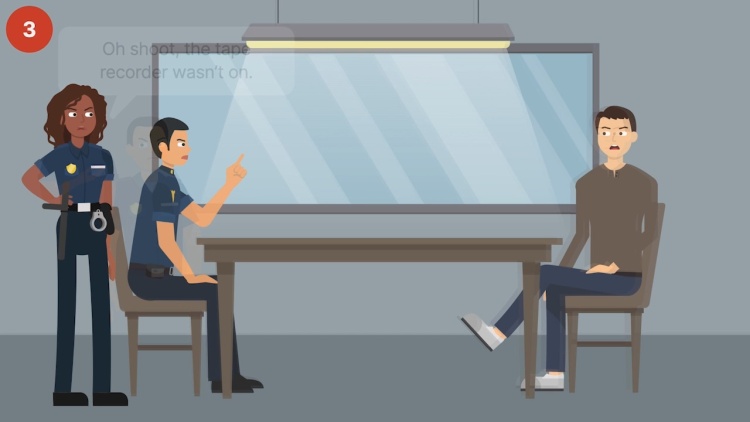Connecticut v. Barrett
United States Supreme Court
479 U.S. 523 (1987)
- Written by Salina Kennedy, JD
Facts
William Barrett (defendant) was arrested for sexual assault. Police advised Barrett of his Miranda rights three separate times, and each time Barrett stated that he would talk to police but would not give a written statement without his counsel present. Barrett then verbally confessed to the sexual assault and later repeated his verbal confession. At trial, Barrett testified that, at the time he made his confession, he understood that he had the right to remain silent and to have an attorney present and that anything he said could be used against him. The trial court held that Barrett’s confession was admissible because he had told police that he understood the Miranda warnings prior to confessing to the crime. The Connecticut Supreme Court reversed, holding that Barrett’s invocation of his right to counsel for purposes of making a written statement acted as an invocation of his right to counsel for all purposes.
Rule of Law
Issue
Holding and Reasoning (Rehnquist, C.J.)
Concurrence (Brennan, J.)
Dissent (Stevens, J.)
What to do next…
Here's why 907,000 law students have relied on our case briefs:
- Written by law professors and practitioners, not other law students. 47,100 briefs, keyed to 996 casebooks. Top-notch customer support.
- The right amount of information, includes the facts, issues, rule of law, holding and reasoning, and any concurrences and dissents.
- Access in your classes, works on your mobile and tablet. Massive library of related video lessons and high quality multiple-choice questions.
- Easy to use, uniform format for every case brief. Written in plain English, not in legalese. Our briefs summarize and simplify; they don’t just repeat the court’s language.





